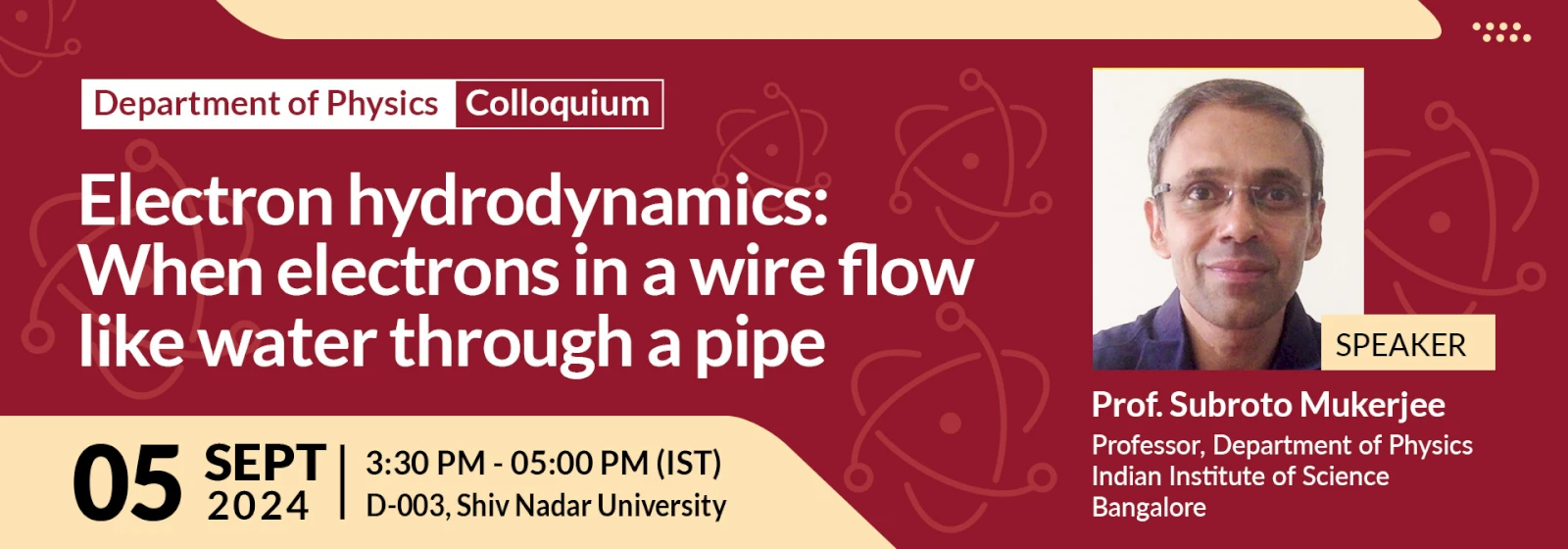Physics Colloquium: Exploring Electron Hydrodynamics
The Department of Physics, School of Natural Sciences, invites you to an upcoming colloquium on the topic "Electron hydrodynamics: When electrons in a wire flow like water through a pipe." The event will be held on Thursday, 5th September 2024, from 3:30 PM to 5:00 PM (IST) at D-003. The colloquium will be delivered by Prof. Subroto Mukerjee, Professor at the Department of Physics, Indian Institute of Science, Bangalore. Prof. Mukerjee will explore the fascinating behaviour of electrons in a wire, drawing a parallel to the flow of water through a pipe. This session promises to offer valuable insights into the field of electron hydrodynamics and is an excellent opportunity for students, faculty, and researchers to deepen their understanding of this intriguing subject. All are encouraged to attend.
Abstract:
In the standard treatment of electrical transport through a metallic wire, electrons are assumed to undergo collisions with impurities or lattice vibrations, which degrade their momentum. This picture underlies the usual derivation of Ohm's law. On the other hand, the transport of fluids (like water) through a pipe is fundamentally different because the fluid particles undergo momentum-preserving collisions among themselves. There is thus no analogue of Ohm's law for a fluid. Over the last decade, with the advent of ultra-clean electronic systems like graphene, it has become possible to induce electrons to flow through channels or wires like conventional fluids do through a pipe. This has led to the emergence of a new field of study called Electron Hydrodynamics. In this talk, I will describe the phenomenology of the hydrodynamic behaviour of electrons and contrast it with the standard textbook description of electron flow in a metal. I will also briefly describe the experimental signatures and observation of the phenomenon. Finally, I will show how the combination of electron hydrodynamics and non-trivial topology can give rise to novel transport coefficients that do not exist in usual metals.

Share this: